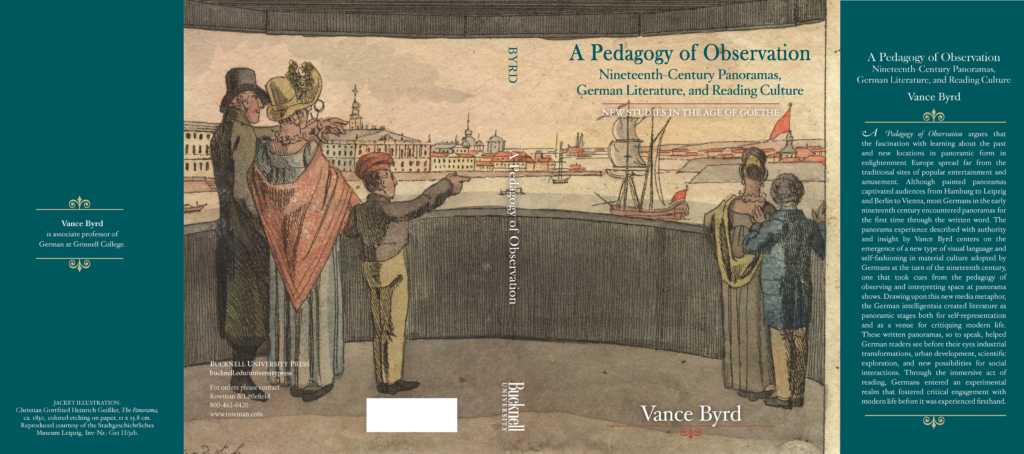As President of the North American Goethe Society, I had the privilege of participating in the 85th Hauptversammlung of the Goethe-Gesellschaft in Weimar from June 7-10. The Goethe-Gesellschaft serves a broad lay audience by drawing them to Weimar in order to engage in conversations with artists, teachers, other readers, and researchers. Unlike American scholarly societies, the Goethe-Gesellschaft speaks to a still robust Bildungsbürgertum that continues to celebrate Weimar culture. In addition to bringing scholars and connoisseurs together, the Hauptversammlung also draws international representatives of other Goethe societies. This year many panels focused on Weltliteratur and the global reception of his work, so that discussions took on a very comparative approach. One important similarity between the North American Society and the Gesellschaft in Weimar is the shared concern to attract young readers of eighteenth-century German literature.Our own 2017 Atkins Goethe Conference is now fast approaching. From November 2-5, we will be gathering at Penn State University in the Nittany Lion Inn for meetings, lectures, dinners, and a dissertation workshop. We look forward to your arrival in Central Pennsylvania at the height of the Fall season. Our conference will consider the topic “Re-Orientations around Goethe” in order to examine the eighteenth-century’s many kinds of revolutions in conjunction with our own era’s new critical approaches to German literature, politics, science, and art. Directors at Large John Smith and Heidi Schlipphacke took charge of reviewing the paper proposals and organizing the panels. This year the Society was able to provide travel funds for foreign scholars, graduate students and non-tenure track professors to attend the Atkins conference. These funds were drawn largely from royalties generated by the online publication of the Goethe Yearbook. Vice President Catriona MacLeod will also award prizes during the conference for the best essays in eighteenth-century studies. Our connection to German scholarship will be well maintained through two keynote speakers, Helmut Schneider from the University of Bonn and Eva Geulen from the Humboldt University in Berlin.At the Atkins conference, we will also begin an important transition among the positions of our Society’s officers. Patricia Simpson and Birgit Tautz, the new editors of the Yearbook, will also be attending the conference as they take on their new responsibilities. Please feel free to speak with them about their plans and your interest in publishing in the Yearbook. For the last five years, Elisabeth Krimmer and Adrian Daub have done an excellent job editing the Goethe Yearbook. They have published lively and rigorous volumes. Because of their hard work the Yearbook continues to hold a prominent position in eighteenth-century studies not only in the United States and Canada but also in Germany. We are most grateful for their attentive work and we wish them success as they continue in their own scholarship and teaching.A few last technical details: The lecture rooms will all be equipped with video projectors, but we ask that you bring along your own laptop computers if you want to show images. Please make sure to register in advance so that we can pass your meal preferences along to the caterers. As our Society continues to attract new scholars, we urge you to renew your membership. Finally, Daylight saving time will come to an end on November 5, so please make sure to adjust your clocks and enjoy the extra hour.
Daniel PurdyPennsylvania State University
